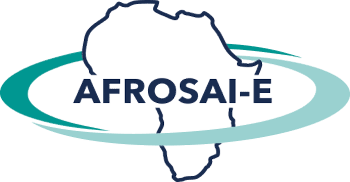EITI Conference on Beneficial Ownership Transparency
Theme: Opening Up Ownership: Africa Harnessing the potential of Extractives
The Extractive Industries Transparency Initiative Conference took place in Dakar, Senegal from 31 October to 2 November 2018. This conference  was held to share experiences on the status of progress towards 2020 in terms of the EITI standard 2.5 (c) of 2016 implementation.
was held to share experiences on the status of progress towards 2020 in terms of the EITI standard 2.5 (c) of 2016 implementation.
According to this standard, as of 1 January 2020, it is a requirement that EITI implementing countries request, and companies disclose, beneficial ownership information for inclusion in the EITI Report. This applies to corporate entities that apply for, or hold a participating interest in an exploration or production oil, gas or mining license or contract. It should include the identities of their beneficial owners, the level of ownership and details about how ownership or control is exerted.
Approximately 200 delegates, mostly from EITI member countries, included high-level government officials, members of parliament, experts from the World Bank, ADB, NRGI, Civil Society and 24 African EITI implementing countries, attended the conference. This diverse range of participants also used the opportunity to discuss best practice, country specific challenges and encouraged peer learning.
Conference discussion topics included:
- Improving revenue mobilisation with beneficial ownership data
- Reduce risks in extractives licensing
- Legal approaches to ownership transparency
- Making the ownership register public
- Getting accurate ownership data
- Identifying Politically Exposed Persons and potential conflict of interest
- Using EITI to move from commitments to action: Experiences from EITI countries
- Working with civil society and industry to achieve ownership transparency
- From policy to practice: creating useful, usable and linkable data on beneficial ownership
AFROSAI-E was invited to speak at the event on Getting accurate ownership data in a panel discussion. Other panel members included representatives from the African Development Bank Office of Integrity and Anticorruption, the Open Data Services Cooperative, the OECD, the Ukraine International Renaissance Foundation, and the Senegal Cornerstone Advisory
Anthony Kimuli, Assistant Director of Audit at SAI Uganda represented AFROSAI-E on the panel. In his presentation, he also shared the AFROSAI-E Extractive Industries guidelines, the initiatives undertaken in the region, information on the joint/collaborative audits, coordination with WGEI, and curriculum development.
He expanded on the current challenges on beneficial ownership and the fact that most national laws do no define beneficial ownership comprehensively. Instead the issues are decentralised in various laws with different objectives, or laws that are outdated.
Other audit findings relate to:
- The lack of electronic data registers with data being compiled manually.
- Access to public or open data versus confidentiality of agreements and security provisions.
- Accuracy of data in terms of collection, authentication and validation and absence of red-flagging.
- Capacity development in many Extractive Industries sectors needed.
Overall there was recognition that ownership transparency is here to stay – it is now a global norm. The importance of ownership data as a key piece of the puzzle for increasing tax collection, curbing illicit financial flows and identifying corruption in the oil, gas and mining sector was emphasised.
Most importantly, the beneficial ownership agenda is very advanced in many countries, especially in the EITI member countries. Ghana, Democratic Republic of Congo, Sierra Leon, and Nigeria and others are already reviewing laws to mainstream beneficial ownership before the 2020 deadline.
“Transparency is no longer an aspiration but an expectation” – Fredrik Reinfeldt, EITI chair
Click here to view the complete list of EITI implementing countries.
